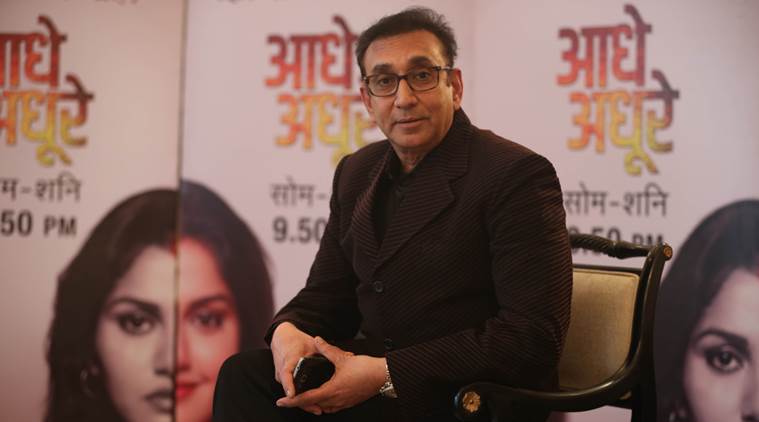Director Ajai Sinha on creating female characters that defy stereotypes and keeping it real on television.
Indian television in the ’90s was almost revolutionary. It was a time when serials captured the changing socio-economic mores. Shows like Shanti (1994, DD) and Tara (1994, Zee TV) gave the audience female characters to look up to. Independent, single and ambitious, these women refused to settle down or play victim. At a time like this, Ajai Sinha, a young civil engineer turned writer-director, introduced us to Savi, the protagonist of Hasratein (1995), who walks out of a marriage and leaves a child behind to pursue a relationship with her boss. Savi became dinnertime conversation, and Hasratein an instant hit.
With the advent of Star Plus a few years later, the audience found itself in the middle of saas-bahu tussles. But Sinha’s women held their ground. We met Dr Simran, a gynaecologist in her 30s in love with a man a decade younger, in Zee TV’s Astitva…Ek Prem Kahani (2002).
Sinha, 50, is back in the limelight with a show that is ruffling feathers on the small screen. In Zindagi channel’s Aadhe Adhoore, Sinha sets the story in Kapurthala, with Jassi at the centre, a woman in a long-distance marriage having an extramarital affair with her brother-in law. The women in his shows have always lived by their own rules, defying social boundaries and being unapologetic about their choices. Excerpts from an interview:
How did Aadhe Adhoore come about?
It’s based on a real story, and I tried to make a movie on it, but I didn’t have the finances. Anyway, Zee liked the idea, and I began shooting it in August last year. The main premise of the show is that Jassi is unapologetic about her affair with Varinder, her brother-in law. Her husband is in the UAE and visits her once a year, and she doesn’t know what he’s up to there. She has urges and desires, too, and very early on in the show, Jassi says, ‘Varinder meri zaroorat hai’. She’s not manipulative or evil or a home-breaker. And it’s not that she doesn’t love her husband. She has these urges, a need for sex, which she fulfills with Varinder.
What kind of feedback have you received for the show?
It’s mostly been good. People want to watch real women, real characters on television. But I have also been accused of showing something un-sanskaari, of polluting the devar-bhabhi relationship. I believe that under the garb of culture and tradition, our society exploits women. Through my shows, I want to put across the message that society belongs to women as much as it does to men. If it’s fine for a man to find love, sex or any kind of gratification outside his marriage, then how can it be any different for a woman?
Both Hasratein (1995) and Astitva (2002) were ahead of their times, and the characters in the two shows now enjoy cult status. How tough was it to bring them to the small screen at that time?
Actually, selling the idea to Zee wasn’t tough because they were looking for fresh, edgy, groundbreaking content. My shows worked because the women who watched them could relate to their feelings and desires.
Where did you go after Astitva?
I never left the industry, and did a lot many shows after Astitva — for instance Justajoo, Samay, Dollar Bahu and Gudgudee. But they weren’t quite as popular because the saas-bahu formula had clicked with the audience. I also made a movie called Khap in 2011with Om Puri, but it tanked. I lost a home and an office in order to finance it. I directed a comedy film with Sharman Joshi and Riya and Raima Sen called 3Bachelors, but it didn’t release for 10 years. And, now, finally there is Aadhe Adhoore.
Were you always interested in television?
Well, I grew up in Lucknow, in a family that has nothing to do with TV or films. I went to Gorakhpur to study and became a civil engineer. I used to read a lot — everything from Shakespeare to Premchand — and I also wanted to be an actor. In Delhi, I did some theatre with IPTA. I shifted to Mumbai, kept my job as a civil engineer, realised I couldn’t be an actor, so I started writing. My childhood, the books I read, certain incidents etched in my memory about how women were treated around me have contributed to the characters I build.
Where do you go from here?
I want to make more such stories of complicated yet interesting relationships that defy the so-called rules of society. Basically, under the Aadhe Adhoore title, I want to make more shows. It’s just a thought for now, let’s see if it works out.

